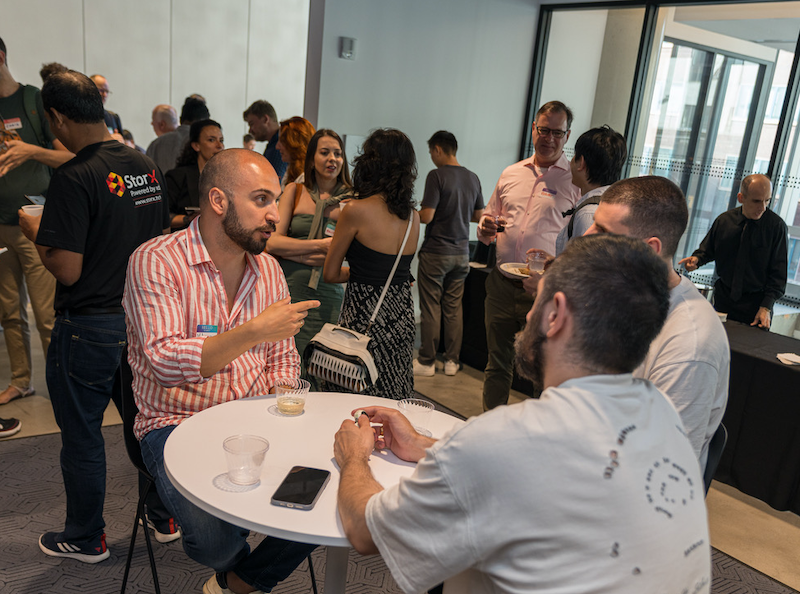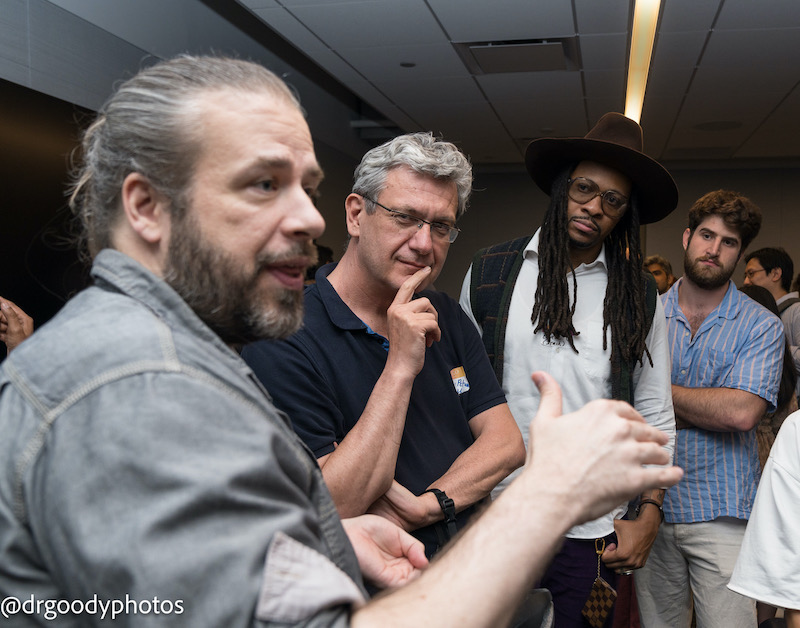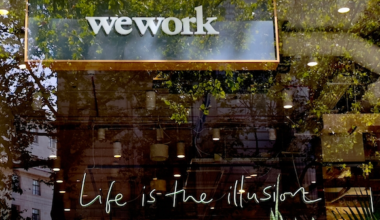“Can I show you a demo of my app?”
Recently, at NY Tech Week I had the privilege of interacting with multiple founders whose passion and energy were magnetic. One immigrant founder in particular talked intensely about his work.
Unfortunately, between the background noise and his accent, I could only nod as I struggled to understand him, a problem he might have unknowingly faced with many others.
That doesn’t mean one needs to change their accent. If you are aware of it, then it becomes easy to cut the listener some slack by starting with: “Please feel free to stop me if you need me to repeat anything.” And then, be willing to repeat yourself or clarify when needed.
Why you need social capital
Most immigrant entrepreneurs arrive in the U.S. big on dreams and light on social capital. While founders dream in the universal language of passion, communicating that energy often entails facing language barriers and cultural differences. Plus the business culture in the U.S. emphasizes connections made through social and casual interactions.
What immigrant founders lack in community, they counter by showcasing exceptional entrepreneurial prowess, grit, and determination. An impressive 44.8% of Fortune 500 companies in 2023 were founded by immigrants or their children.
Nevertheless, developing a strong network remains essential to the growth of your business.

So how does one conquer the hesitation of putting themselves out there, and sharpen networking acumen?
How most of us see networking
Networking is not selling, or a race to maximize one’s contact lists. It’s an effort to make genuine connections and understand how we can add value. When we exercise this muscle over sustained interactions, the positive karma eventually finds its way back.
Here are some observations and strategies that have worked for me and our team:
- Challenge your assumptions
How often do we reflect on our inhibitors and biases? Here are two ways to think about it:
The Expectation Effect: Do you ever find yourself hesitating before entering a room where you don’t know anyone? Perhaps you feel a knot in your stomach as you step into a conference hall, and anxiously scan the room for a familiar face.
Take a moment to reflect on how this might be affecting the outcome of your efforts and reinforcing your beliefs. Simply put, when we believe we don’t enjoy a task, we experience an inherent difficulty in attempting to excel in it.
A recent HBR study revealed that those with a promotion focus, i.e. who aim to win, are more likely to network successfully. Therefore, to increase motivation and opportunities for growth and connection, believe in positive outcomes and practice positive self-talk.
Evaluating implicit bias: The biases immigrants face and worry about vary between factors such as race, ethnicity, English proficiency, income level, and immigration status.
But how often do we reflect on our own biases and how they might influence our interactions and unintentionally limit our network?

For example, when networking, do you find yourself gravitating towards affinity groups, or individuals with similar backgrounds or characteristics as yourself? Or stereotyping someone young to be too inexperienced, or someone older to be tech-challenged?
Staying one step ahead of our preconceptions can help reduce the homogeneity of our networks and challenge us to step outside our comfort zone.
- Prepare and then some more
Know before you go: When attending an event, you’ll have the opportunity to meet the hosts, panelists, and other attendees. By researching their professional backgrounds on LinkedIn, or their websites, and understanding their interests, you can find common ground, ease social anxiety, and walk in with confidence.
While LinkedIn profiles provide valuable insights into someone’s work and background, examining individual and company posts reveals what’s currently on their mind, setting you apart even more.
Additionally, in my experience, arriving early to networking events allows you to meet the hosts and/or the panelists, and use what you know to initiate meaningful conversations.
Small talk to the big talk: Small talk is seen as critical for building and maintaining positive relationships. Being prepared with some conversation starters for networking events can help reduce the anxiety or awkwardness of approaching new people.
For instance, you can stick to familiar topics including weather or travel, or look for commonalities and ask, “What brought you to this event?” or “Are you from around here?”
Sometimes, when you join a group conversation, it might make sense to switch to what I like to call the big talk. For me, that could be questions around the work they share –- including ‘What is your business model?” or “What is your competitive advantage?”– based on the temperature of the conversation.

Be selective: With limited resources, how can you focus on opportunities that are more likely to yield meaningful connections and professional growth? Our team finds success by purposefully selecting events where we can preview the attendee list to then filter and network meaningfully.
Events that are ‘gated’ in some way often attract more serious participants. Today, many event hosts are dedicated to curating high-quality networking events.
“While everyone wants to accommodate as many people as possible, it is necessary to have the courage to exclude those who do not fit the concept,” says Kyosuke Togami, host of the MELT events in NY and SFO. His events stand out for the extensive attendee information that they share beforehand, and the legwork is advantageous to the motivated networker.
Pitch perfect: Consistently practicing key talking points and working on enunciating your words will bolster your confidence. In networking events, sharing your business pitch is common, and a concise yet high-energy pitch can make for a strong first impression. When your business premise comes across clearly and quickly, it keeps the listener engaged and allows them to ask relevant questions.
Here’s a one-sentence pitch format that you could adopt for sharing your business idea with new people.
- Intentional communication
Many immigrant entrepreneurs are well-educated, holding a master’s degree or doctorate. Yet, the language barrier is real, and being fluent in English, even if you’re conversational, can be challenging. Moreover, it can be even more intimidating for immigrant entrepreneurs when they encounter young adults with exceptional communication skills.
Turn on your ‘curious’ mode: At a recent Sales & Exits event for immigrant entrepreneurs, Chris Brown from Nvidia noted it’s important to remember that the U.S. education system emphasizes developing communication abilities from early childhood.

Instead of feeling daunted, focus on your skills and flavor the conversation with the strengths of your experiences. Work on being a good listener and use tools like paraphrasing to demonstrate interest and reinforce your understanding.
Take advantage of every opportunity to practice your communication skills to improve and understand the nuances of culture and communication.
When you get real, people to people, that resonates universally across cultures. Be the connector, the one who adds value in some form, the one who is generous with their interest and influence, and what goes around will come around.
About Aditi Tandon
Aditi Tandon is a co-founder at Maroon Oak, a boutique executive search firm for startups. Based in the NY area, the company partners with founders and investors in the U.S. and globally to hire talented leaders, senior teams, and Board and Advisory for ambitious companies at all stages of growth. Connect with her if you have questions about hiring or building teams in the US.








